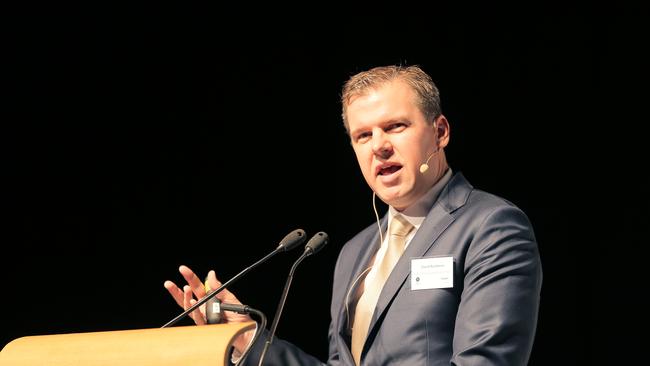ASX-listed CFOs signal economy likely to improve by 2025: Deloitte
Top CFOs are confident the economy is nearing a turning point as Wednesday’s high-stakes inflation data and the threat of a rate hike shapes up to be a pivotal moment for the economy.

Leading chief financial officers are signalling the economy may be nearing a turning point, with confidence lifting at its fastest rate since the end of the pandemic on rising expectations of revenue and profit growth.
Deloitte’s biannual CFO Sentiment survey of more than 80 ASX-listed CFOs shows net optimism about the financial prospects of their companies has surged by 29 percentage points to 56 per cent over the past six months – the first meaningful increase in optimism in three years.
It comes ahead of high-stakes inflation data on the June quarter on Wednesday, with a reading above 1.1 per cent for the quarter of 3.9 per cent for the year likely to force the Reserve Bank to lift interest rates, market watchers say.
Deloitte Access Economics partner David Rumbens said CFOs were increasingly confident that the next 12 months would be better for companies compared to the current climate, with optimism about increasing revenue and delivering improved profits.
“CFOs feel we’re at a turning point for the economy with inflation coming down, and half feel that interest rates will be lower by this time next year,” he said.
“A lot more also see Gen AI having a more transformative effect on their business and their industry, and including on their finance function than in the past.
“There’s a stronger view that some of the actions that they can take to strengthen their business will actually bear fruit over the next year.”
Although the broader Australian economy is still afflicted by sticky inflation and low growth, the share of CFOs feeling pessimistic or highly pessimistic about the economy has fallen from 43 per cent to 29 per cent in just six months. Overall the outlook was at -7 per cent compared to -31 per cent in the prior period.
This improvement follows a period of high inflation and consecutive interest rate rises, which affected CFOs’ confidence in the financial prospects of their company and the economy. Historically, CFO confidence has been most affected soon after major changes in economic conditions that drive greater uncertainty, such as the onset of the pandemic and the initial inflationary period.

Mr Rumbens said Wednesday was a watershed day for the economy, with a lot riding on the inflation rate and whether the RBA has to lift rates for the first time since November.
“If that inflation data comes in a little lower than some people are fearing, it is likely to be seen as a turning point that we may not need to lift rates again,” he said.
“We will still probably need another quarter to get that confirmation, and that will see more businesses feel we’re back on the right path, and the benefits of additional government spending helping consumers will help this.”
Most CFOs remain uncertain about where the RBA will take interest rates and are almost split down the middle as to whether the cash rate will be lower in a year’s time or not.
Mr Rumbens said once CFOs felt the risk of another rate hike was not on the table then confidence about the economy would increase substantially.
“Australia is one of the few developed countries where we either haven’t lowered interest rates yet or it’s not on the immediate agenda,” he said. “Unlike in Canada, Europe, the UK and the US, executives feel that the next move is likely to be up, with lowering to come much later.
“That’s a bit of a drag on the thoughts about economic performance. Australia also has more links than other countries to China, whose economic performance is underwhelming at the moment as well.”
CFOs are increasingly likely to see the potential inherent in Gen AI, with 78 per cent expecting the technology to cause substantial industry transformation in the next one to five years, up from 57 per cent six months ago.
Meanwhile, more than half of respondents say they have started to implement Gen AI as a cost-control measure, while 50 per cent of CFOs have already begun using AI to improve productivity.
Deloitte partner and CFO Program leader Stephen Gustafson said CFOs strongly believed in the promise of Gen AI, but had a long way to go to realise its full benefits.
“Businesses still need to get the foundational elements right to make the most of innovative tools like Gen AI, such as establishing governance measures to manage risks and by improving data quality across their organisations,” he said.
“The number of CFOs with no plans to implement AI has halved in the last six months, indicating a growing acceptance of the technology and a willingness to explore its potential benefits.”




To join the conversation, please log in. Don't have an account? Register
Join the conversation, you are commenting as Logout